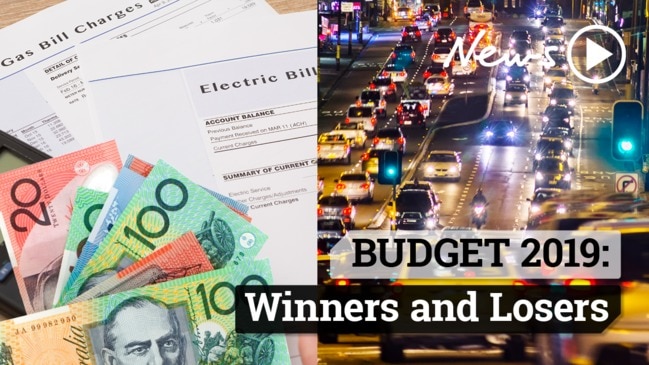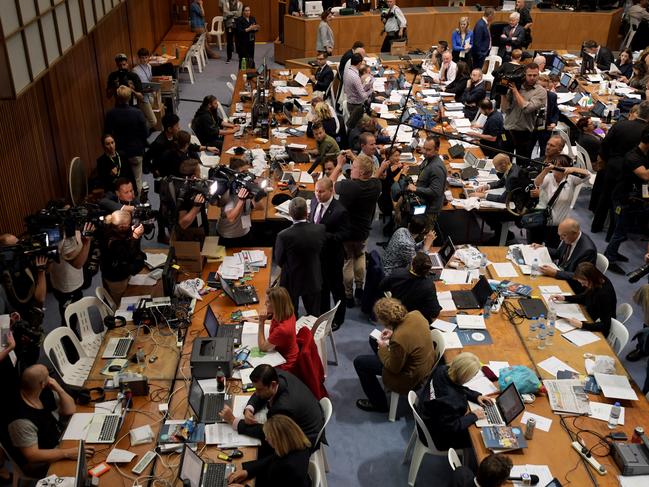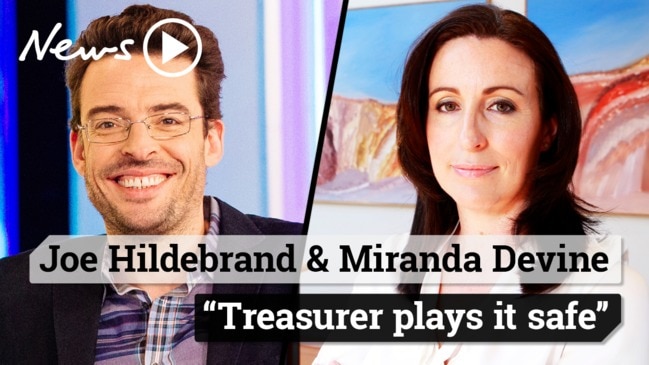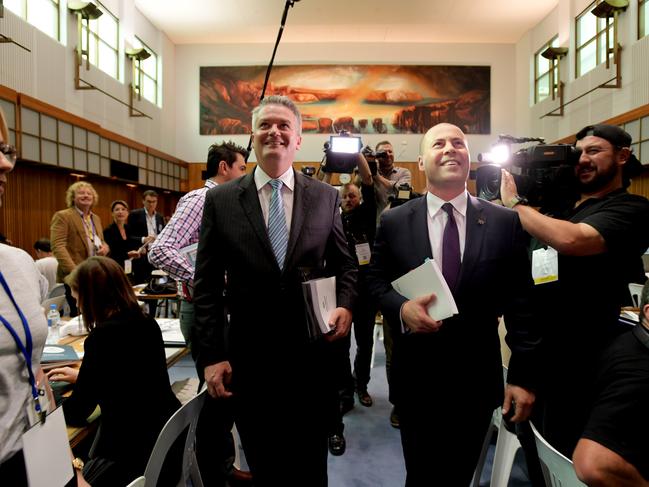Barefoot Investor Scott Pape’s verdict on the 2019 Federal Budget
Make no mistake, our D-Day is certainly coming … even if it hasn’t shown up in the Budget (yet). But you can do something with these tax cuts to help your hip pocket.

Barefoot Investor
Don't miss out on the headlines from Barefoot Investor. Followed categories will be added to My News.
OPINION
I should be having dinner with my wife right now.
That’s because it’s the first Tuesday of the month — which is not only the day the Reserve Bank of Australia decides on interest rates — but also our monthly Barefoot Date Night.
(I combined the two, how hot is that?).
Instead, I’ve flown up to Australia’s fireworks and pornography capital (Canberra), and I’ve been locked up.
They took my phone, my (Apple) watch, and holed me up in a room full of the most distrusted people on earth:
Politicians and journalists.
Yes, I had the opportunity to dine with my wonderful wife — but instead I’m in the media lock up for the Budget, crunching numbers with the likes of Terry McCrann and Alan Kohler.
Truthfully, there’s nothing finance geeks like us enjoy more than calculating effective tax rates, smashing out a spreadsheet and eyeballing the forward estimates, (it’s like sport for poindexters … who were never that good at sport).
Let’s get fiscal!
MORE BUDGET 2019 NEWS:
Treasurer’s Budget speech in full
Budget 2019: How it will affect you
Budget: the winners and losers
Christmas Island detention centre to close again
Medicare shake up among health sweeteners

So the main buzzwords of this Budget are broadly, ‘surplus’ and ‘tax cuts’.
Let’s start with the Budget, which is finally back into surplus for the first time in 12 years. That’s largely thanks to a few free kicks from the rising prices of coal and iron ore — our nation’s biggest exports.
As my old footy coach Coxy would say: “it doesn’t matter how you get there, as long as you do”.
Yet while the media and the government get all hot under the collar about delivering a surplus, what does it mean to the average voter?
Not much, I’d suggest.
It’s a bit like your footy team winning on the weekend.
Sure it’s a good thing, but it’s not like it helps you make your rent on Monday.
And that’s the guts of the problem:
The truth is that the government doesn’t have the debt problem … our households do.
We’ve got record high levels of household debt — among the highest in the world — at a time when interest rates are at record all-time lows.
Go figure?
Yet the Budget papers suggest everything will be A-okay.
MORE BUDGET 2019 NEWS:
‘Funding flop’: $453m for preschools
Aged care pain despite funding boost
‘Secret’ funding to stop cyber spies
Mental health gets crucial boost in Budget

In fact, they paint a rosy prediction of growing surpluses over the next 10 years … though, to be fair, they’ve been shown in the past to be about as reliable as my footy tipping.
Fact is, right now we’re facing the fastest downturn in housing prices since 1980, when property research provider Corelogic began tracking it.
And, they’re unlikely to stop falling in the short-term, given the likelihood of a change in government that have a platform to curb negative gearing, and increase Capital Gains Tax (CGT).

Declining house prices have an effect on consumer spending: when you see the value of your house falling, you’re less likely to give your splurge account a workout.
Make no mistake, our D-Day is certainly coming … even if it hasn’t shown up in the Budget (yet).
Which brings me to the second buzzwords of the Budget: tax cuts.
The Government will provide tax cuts for low and middle-income earners of up to $1080 for singles or $2160 for couples, which assuming it passes in the Senate, means that you’ll receive after lodging your tax return (as early as mid-July).
So what should you do with this political pork payment?
MORE BUDGET 2019 NEWS:
Barefoot Investor’s Budget verdict
Treasurer’s Budget speech in full
Kochie’s verdict on ‘resurrection’ budget

Well, my suggestion would be to do what I’m not doing this evening. Go on a date night with your partner (or Hans Solo if you’re single), and set up your Barefoot buckets over a glass of wine and garlic bread.
The first item on the agenda? Plastic surgery.
Specifically, the average Aussie has $4400 in credit card debt.
According to calculations from PwC economics, if you were to put your $1080 tax cut this year straight off your never-never, you’d save $8448 just in interest, and pay it back 22 years earlier.
Now that’s a surplus turnaround to crow about.
Or perhaps you’re a family with a $500,000 mortgage.
If you both throw your combined $2160 (let’s call it $180 a month) straight on to your mortgage, it’ll save you a whopping $65,000 in interest over the life of the loan, and knock almost four years off your mortgage.
Heck, that’s more time than the current Treasurer has!
Tread Your Own Path!


